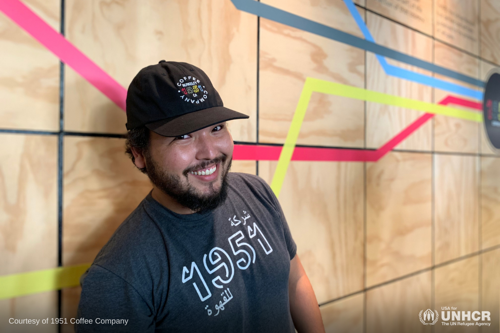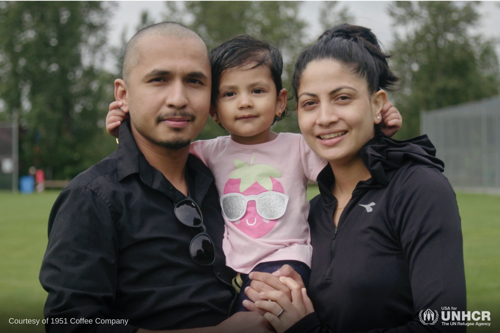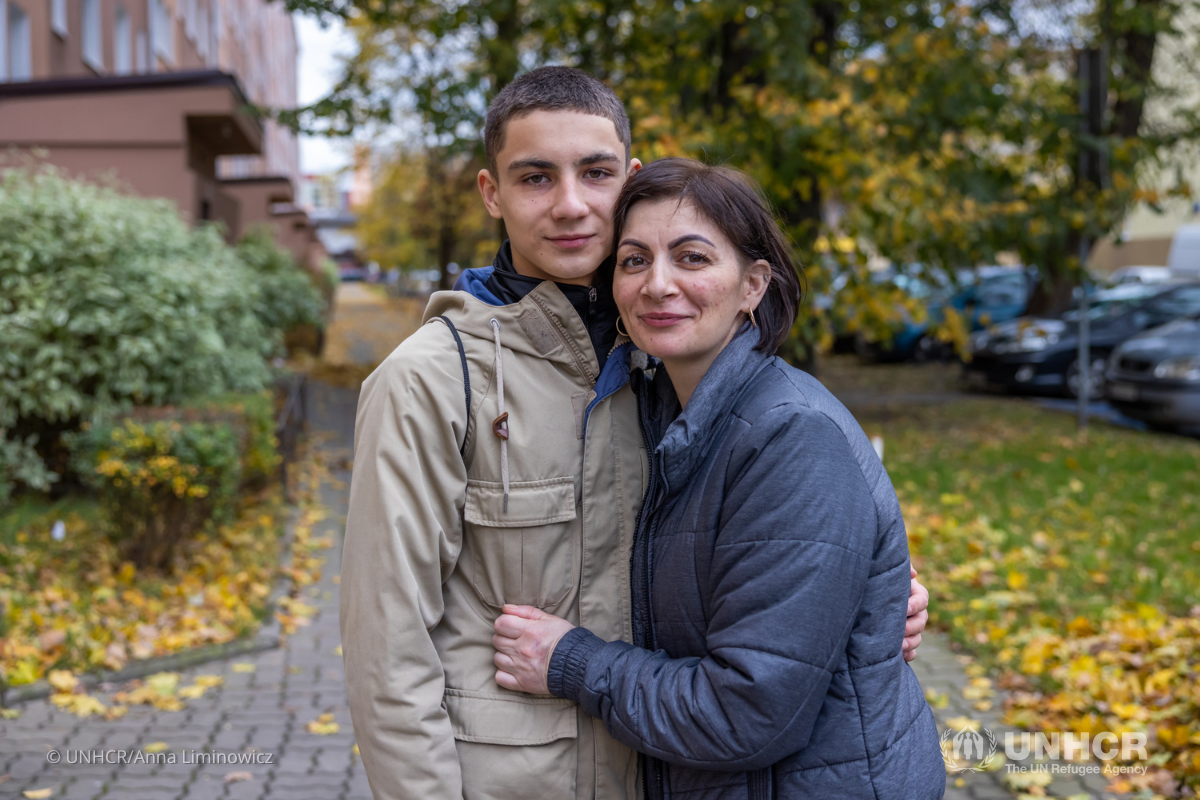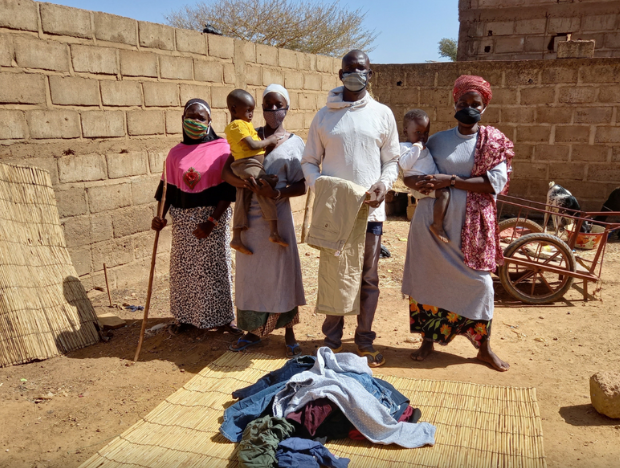Coffee shop offers jobs and training to refugees in the U.S.
On February 25th, USA for UNHCR and the 1951 Coffee Company hosted an event to present an exclusive screening of the short film 'No Single Origin’. The documentary centers around the creation of 1951 Coffee Company, its mission to help resettled refugees in the San Francisco Bay area and explores the complexity of refugee resettlement in the United States.
Following the film, participants enjoyed a behind-the-scenes demonstration of the 1951 Coffee Company barista training program as well as an interactive Q&A with co-founder and CEO, Doug Hewitt, and former refugee and barista graduate, Ali.
The conversation was so engaging that there wasn’t enough time to address all of the questions that came up on the live chat. So here is a recap of those missing questions that Doug Hewitt graciously helped us answer:
1. How can I open a 1951 Coffee Company where I live? Have you consulted with others who want to reproduce something like this in their own communities?
There are three key aspects to consider when opening a new location for 1951 Coffee: funding, personnel, and location - especially funding and community support are essential to begin the venture. Depending on the location, starting a new operation can cost approximately $500-$750k and it is also important to gather the right operational team on the ground. The new location would need a person who knows the coffee industry well in order to manage the shop and training, and a second person who knows and understands the challenges refugees face while resettling in their new communities.
Location is also important. Like any enterprise, having a location close to the customer base is key to help the business thrive. In this case, however, it also needs to be a place that is accessible for trainees and employees. For example, an airport location might be great for business, but might not be great for accessibility. If you are interested in learning more about these requirements, you can always contact us at info@1951coffee.com.
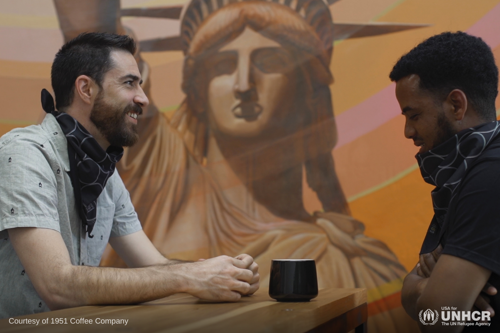
2. Have any refugees/program graduates gone on to start their own businesses after receiving training from 1951 Coffee Company?
Batool - featured in the film - started a catering business for her family. They now operate a restaurant located in the North Beach neighborhood in San Francisco.
Also, a number of our graduates, like Ali, have worked their way into management positions either in the coffee industry or in other arenas. We have had a few former students who have bought their own vans or even semi-trucks to become delivery drivers and long-haul truckers.
1951 Coffee Company’s goal is to help each of our students achieve self-determination. This goes beyond self-sufficiency which is often purely financial and doesn’t necessarily mean that they are thriving. Self-determination is the ability to envision a future that anyone would want for themselves and having relative confidence that they have the right resources to accomplish their goals. While some of our graduates have found a home in the coffee industry, others have dreams in other sectors.
As our graduates share their dreams and visions with us we try to connect them to every resource they need to fulfill those dreams. Financial stability and community connection are just the first building blocks of restarting their lives in America.
3. How many refugees have come through 1951 Coffee Company's barista training program since it opened?
Since March 2017, 237 former refugees have graduated from the program.
4. Is the program self-sustaining at this point? Do you expect to be able to run this without donations in the future?
I think any non-profit social enterprise would love to operate completely independently. However, there are a lot of complications that make that task more difficult. Because our cafes aren’t purely a business we cannot and will not operate with the same level of crude efficiency. Our bottom line isn’t a financial one. It is the thriving of our employees and program graduates that determines our success.
One example of where this comes into effect is with staffing the cafe. Under normal circumstances, a cafe would be staffed with the exact number of employees needed to generate the product for the number of customers coming each day. However, at 1951 Coffee our cafes are an ongoing educational experience for our two-week barista training program graduates. Due to this fact, we must over-staff so that each student has the support needed as they are still learning English, adapting to a new style of customer service, learning the American work environment and adjusting to life in the United States.We do try to operate our cafe programs purely from the revenue the cafes generate, but that isn’t always possible and the cafes are only half of the work we do. The two-week barista training program operates outside of the cafes and is fully funded by donations, as are the admin staff who support both sets of programs.
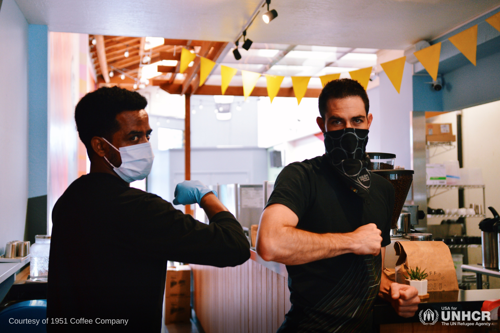
5. Has 1951 evaluated its impact? If so, is the info available? Which metrics do you look at?
We follow up with each of our barista trainee program graduates at three months, six months, and one year after they complete the program to check on their current employment status (job location, job offer date, job salary, job tips, job tips + salary). In 2020, we achieved the following impact:
- 237 Graduates
- 44+ Employment Partners
- 82% Job Offer Rate
- $17.13 Average Salary
- 37 Countries Represented
Also, we are in the process of doing an in-depth evaluation of the long-term impact of our program years after it is implemented, but since it is in progress, we don’t have a final report at this moment.
6. How has 1951 Coffee Company been able to financially survive the pandemic?
Since we have been in operation for four years, we qualified for some forms of COVID-19 relief. However, not all types of relief are available for non-profit social enterprises. At the same time, many foundations have shifted their focus in the past year and put refugee workforce development on the back burner to other causes.Our team has shrunk significantly to try to adapt and hold on until refugee programs can be re-emphasized and for cafe operations to reach full capacity again.Our biggest support - and what has allowed us to continue helping all of our graduates during this challenging time - has been direct donations from individuals. Without individuals seeing the need for programs like this one to exist after the pandemic, we wouldn’t be making it through.
7. You said there are several other similar ventures in the U.S. Are those all coffee businesses, or are there other types? What are they?
One of the closest models to ours is Refugee Coffee in Clarkston, Georgia. They do amazing work with industry training and direct employment.There are a number of refugee focused businesses that provide jobs, but I am not directly aware of any others providing industry training, job placements in other companies and direct employment with a sole refugee focus.
8. How does a person qualify for the 1951 barista training program?
We work with refugees, asylum seekers (with work authorization), asylees, special immigrant visa holders, international victims of human trafficking, and Cuban and Haitian parolees. We do not put a time stamp on when we can work with these individuals as we know the need for training and employment can come at any stage.
We have designed our programs to assist people when they first arrive but have also found people needing assistance further down the road in order to make transitions in their life as they work toward self-determination. For example, people that are stuck in jobs that provide no path forward --dishwashing, stocking shelves in a warehouse, etc.- and young refugees graduating from high school who are not yet prepared to pursue higher education.
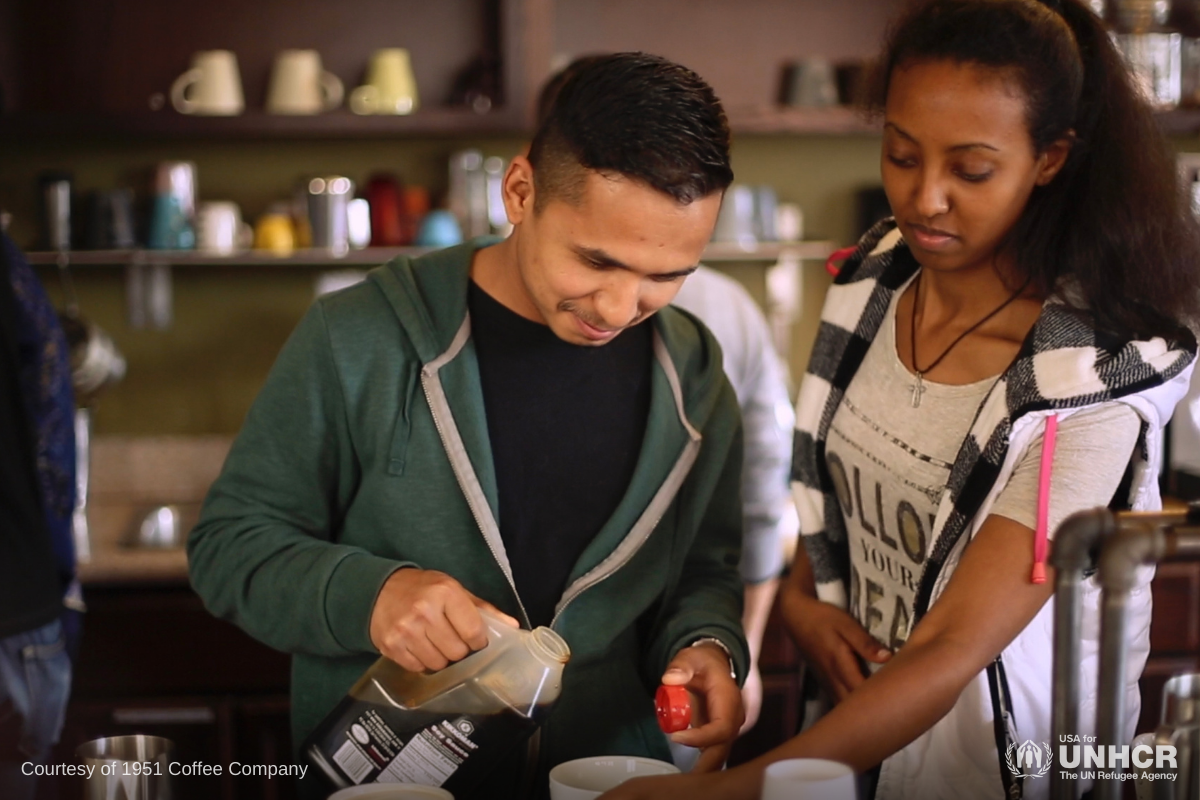
9. I would like to recommend ‘No Single Origin’ to someone. Is there another means to see it?
You can watch the full event, including ‘No Single Origin’ above. The film itself is also available on Vimeo On Demand.
10. What refugee resettlement agencies do you work with? How do you recruit your students?
We are a part of a consortium of refugee agencies here in the California Bay Area but have also worked with agencies in San Diego and Seattle. Our primary partners have been the International Rescue Committee, Catholic Charities, Jewish Family and Children Service (HIAS), World Relief (Seattle), African Advocacy Network (San Diego), Vietnamese Community Center of the East Bay and many more. As we have classes opening up these agencies will assess who might be a good fit. We then meet to ensure that the prospective student understands what the program is and to ensure they are interested.
Post-graduation, we work closely with the agencies to ensure that they are informed of any employment leads in our network of cafe partners. 1951 Coffee Company will also take over the placement of that graduate if the agency is unable to provide direct support.
One of our largest recruiting pools are asylees. Asylees are often not connected to an agency. We connect them through local asylum orientations provided by the U.S. Citizenship and Immigration Services (USCIS). We do a five-minute presentation of our services and then connect with students afterward. Beyond that, our program graduates also refer their family, friends, and neighbors to us.
About the 1951 Coffee Company
Founded in 2015, the 1951 Coffee Company is a specialty coffee organization that promotes the well-being of the refugee community in the United States through job training and employment opportunities in the coffee industry. With three coffee shops in the San Francisco Bay Area, the organization provides training and employment opportunities to refugees and asylees to help them achieve financial stability while educating the local community about refugee issues.
The Barista Training Program and ongoing job placement support allow participants to learn much more than just how to make high-quality coffee. They deepen their barista and customer service skills, learn more about the U.S. workplace and practice their English skills in a supportive environment.
More details from the event can be found here.
